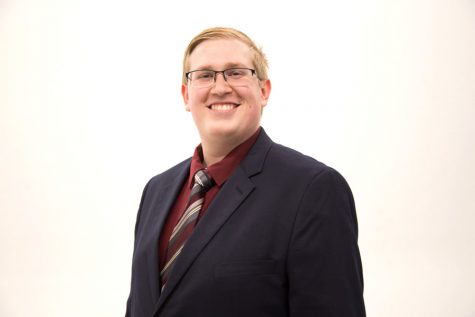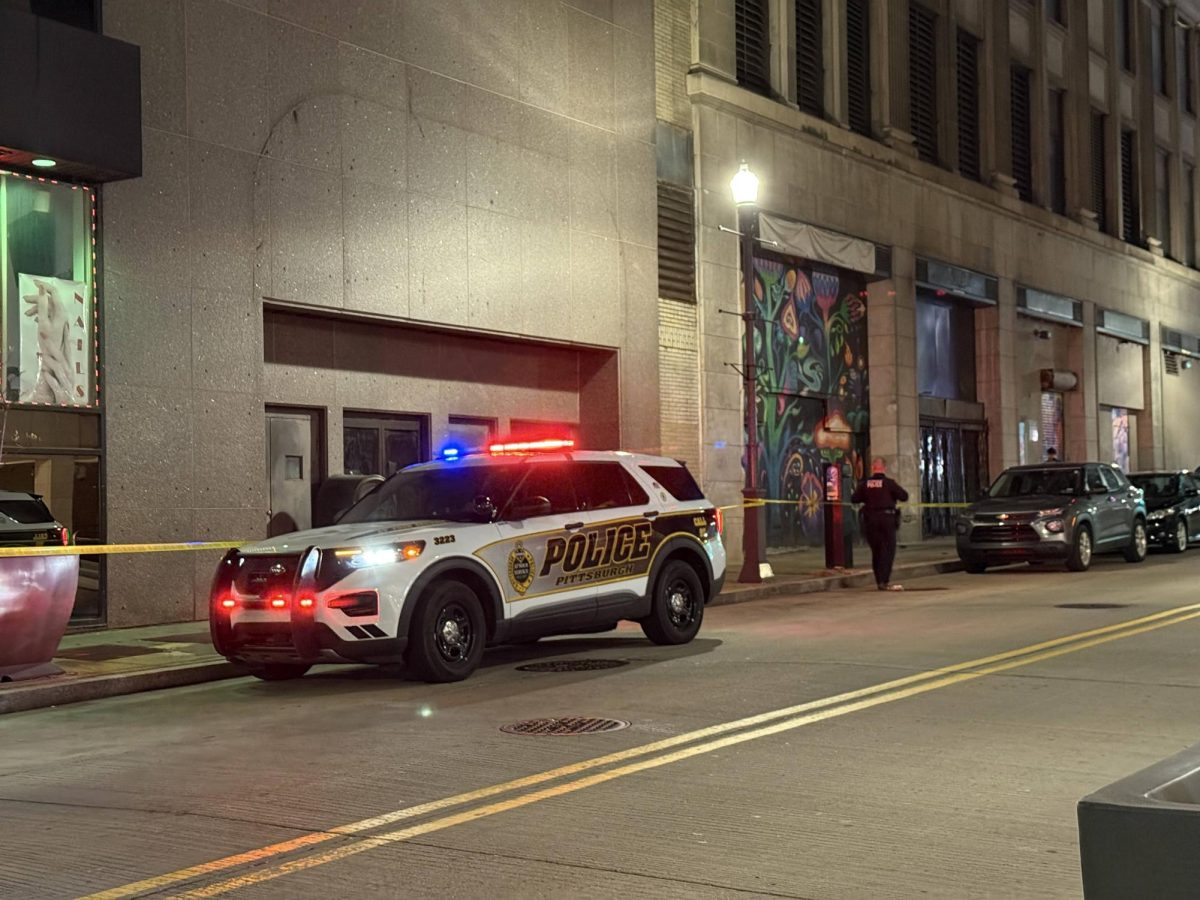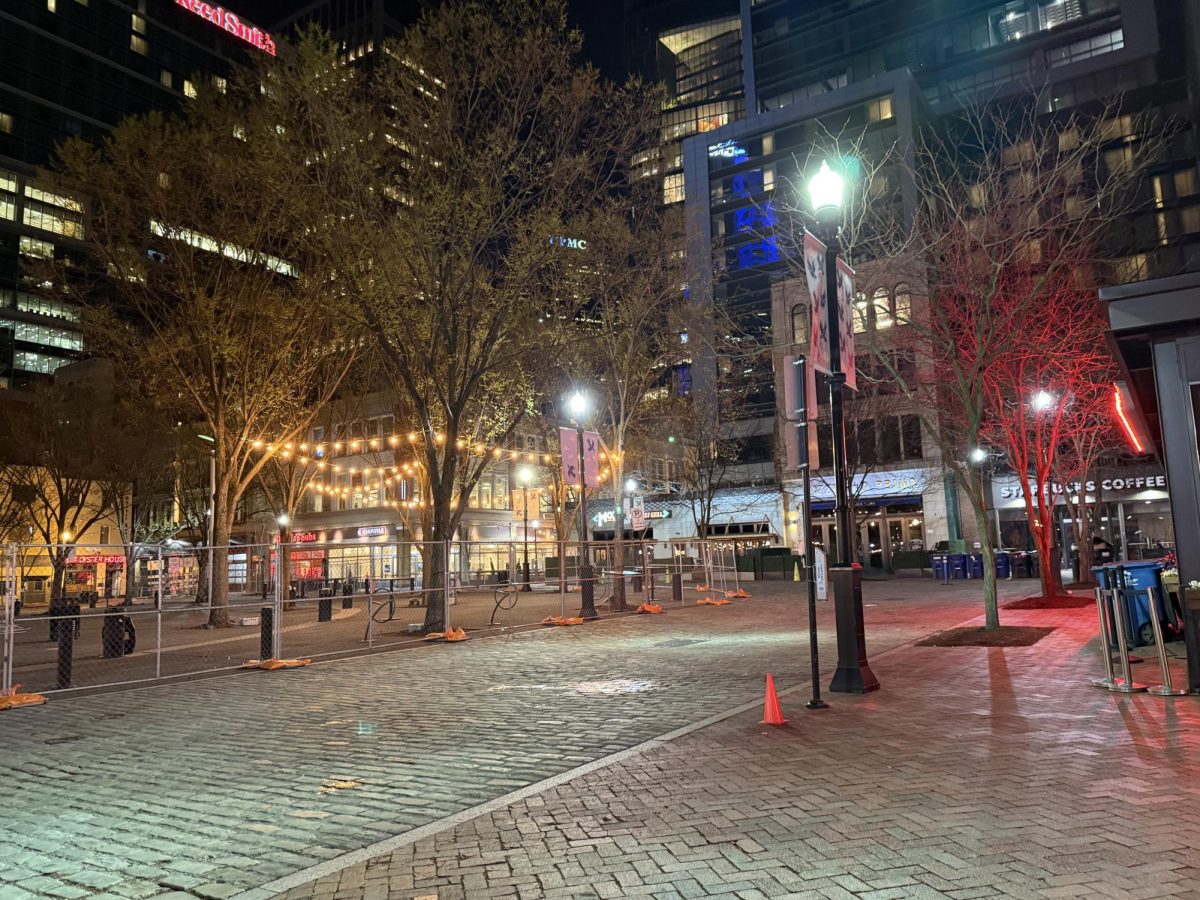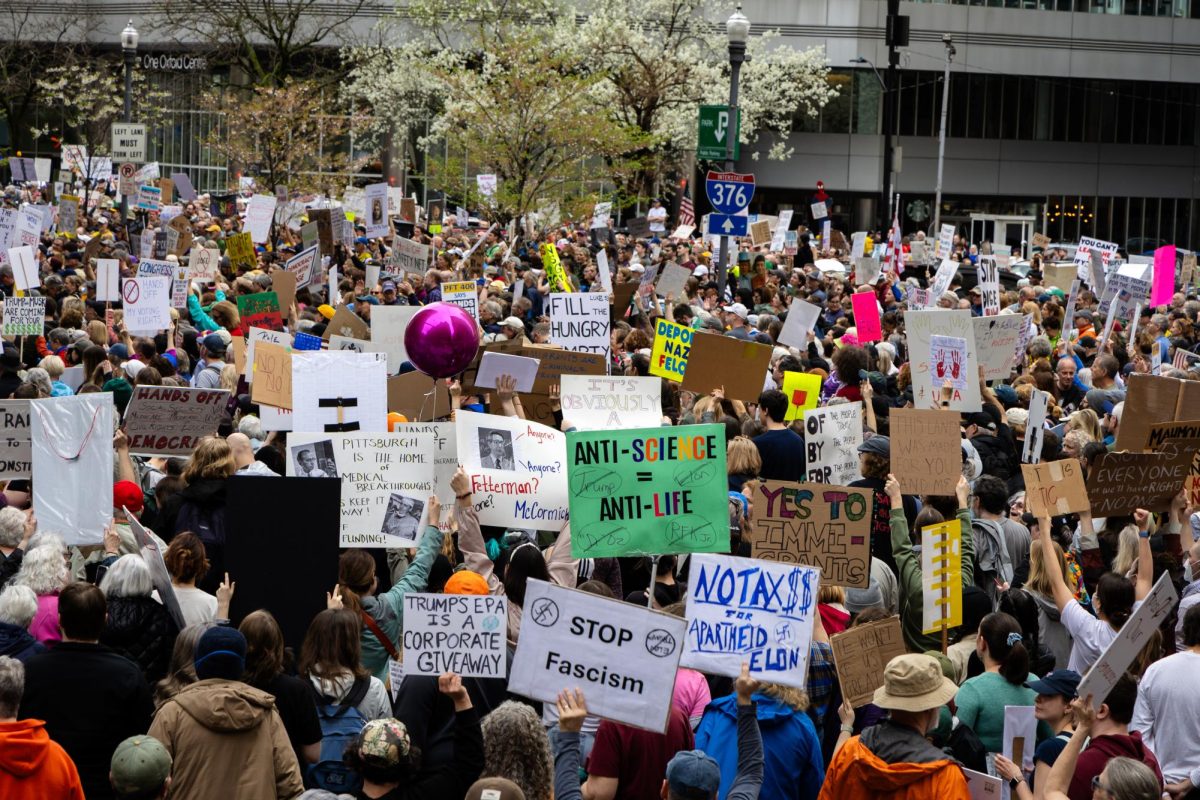
photos by Alexander Popichak
Onlookers inspect the charter of the city of Pittsburgh Friday, March 18, 2016, which marked the bicentennial of the city’s incorporation.
Pittsburgh’s past, present and future collided in a space designed for cooperation between city and county governments. The Pittsburgh City-County Building on Grant Street was packed with nearly 500 people on Mar. 18, 2016 for the celebration of the bicentennial of the city’s incorporation.
“Today we celebrate Pittsburgh’s past, and you can go through the booths and tour this wonderful building and feel the rich history that we have,” said Pittsburgh Mayor Bill Peduto during his address Friday in the City-County Building. “Tonight, we celebrate the culture of Pittsburgh with an open ceremony in the cultural district with all of the galleries open to all the people. Our history and our culture is what makes Pittsburgh Pittsburgh.”
Incorporation Day festivities included performances by the Pittsburgh 200 Celebration Choir and Pittsburgh CAPA Jazz Vocal Ensemble. Speakers during the celebration included Pennsylvania State House Speaker Mike Turzai, Urban League of Greater Pittsburgh President and CEO Esther Bush and President and CEO of Riverlife Pittsburgh Vivien Li, who was instrumental in the revitalization of Boston’s waterfront and has moved to Pittsburgh to assist the redevelopment of Pittsburgh’s riverfront.
The City-County building was open to the public for tours of the Mayor’s office, council chambers, hall of mayors and the vault in which the city keeps its council minutes and records. Community organizations, schools and museums represented themselves in booths on the main floor in a grouping affectionately called by organizers as “Pop Up Pittsburgh.” While the Oakland Community table advertised upcoming events at the Pittsburgh Playhouse, Point Park University did not have a booth.
“It’s great to bring people down to the City-County building, to see all the rich history in the city of Pittsburgh,” said Pittsburgh City Councilman Corey O’Connor, who represents District 5, which includes areas such as Greenfield, Hazelwood, Regent Square, and Squirrel Hill. “If you do a tour of the mayor’s office, it’s really unique and a lot of people don’t get this opportunity to come down and just walk freely through the building. I thought it was a great way to show our heritage: where the city’s not just been, but where we’re going and I think it really is cultivated in this 200th celebration.”
On March 18, 1816, Pittsburgh was granted city status through state action. That state action, in the form of a charter, was on display for incorporation day at the City-County Building.
“In order to get it here, we got the state archivist at the Pennsylvania Historical and Museum Commission, David Carmicheal, to agree to loan it to the History Center, and then the History Center brought it here to the City-County Building,” said Andy Masich, President and CEO of the Heinz History Center and Chairman of the Bicentennial Commission, at the City-County Building Friday. “It took weeks to have it conserved, specialists with paper conservation unfolded it, relaxed it, because it was all kind of wrinkled and curled up after 200 years in storage and once the conservation was done, a special case was built, it’s climate controlled, and then after today, it will go to the History Center for the rest of 2016.”
In a Jan. 14 phone interview, Masich had mentioned that the city was planning to open a time capsule placed in the cornerstone of the City-County Building for the city’s centennial. However, plans changed when finding that time capsule proved a challenge.
“We see the City-County building as a time capsule of Pittsburgh history,” Masich said. “The whole building… it really speaks to Pittsburgh’s history everywhere you turn. This building was dedicated in 1916. In 1916, in the cornerstone, they hid a time capsule. We just can’t figure out which cornerstone, and where the time capsule is. We’ve had bomb sniffing dogs, we’ve had metal detectors, [and] we’ve even had a guy with a divining rod looking for the time capsule.”
The current hope is to locate the time capsule in time for the July 9 celebration and parade of the city’s mayors. The July celebration will mark 200 years from the day Ebenezer Denny was elected the first mayor of Pittsburgh.
A major theme throughout the event was the evolution of Pittsburgh as time progressed, and Councilman O’Connor noted the importance education has had on the evolution of Pittsburgh’s primary industries. He joined other city leaders in encouraging university students to get involved in the celebration.
“If you could go back 200 years and say that our main industries would be education and medicine, you know, people would think it’s crazy,” O’Connor said Friday. “Now to see all of the new things happening, especially at Point Park Downtown, how Point Park itself has transformed Downtown, and with the new Playhouse, how it’s going to transform the next generations of artists and actors in the city of Pittsburgh, I think it’s a great story to tell how [educators] are really a part of day-to-day lives here, we talk about it wherever we go.”
Mayor Peduto stressed in his remarks the importance of maintaining the city’s identity while continuing to be on the forefront of technology, education and healthcare.
“Today we mark a new milestone, too: the next 200 years of this city,” Peduto said during his remarks Friday. “We are a city that has survived a fire that decimated us, we have survived floods that have held us back, we have survived an environmental degradation; we have survived disparity between the haves and the have-nots; we have survived economic collapse only to return today as one of the top cities in this country and one of the top cities in this world, and our mission for these next 200 years is to keep Pittsburgh, Pittsburgh and to make it a Pittsburgh for all.”

Nearly 500 people attended the celebration of the Bicentennial of Pittsburgh's incorporation as a city at the Pittsburgh City-County Building on Friday, Mar. 18, 2016. The City-County Building was open to the public for tours and community organizations set up booths as a part of "Pop Up Pittsburgh."

Eat n' Park created this Bicentennial Birthday Cake to commemorate the occasion. The cake's detail was hand made and features the city skyline, Pittsburgh's bridges and city landmarks like the Carnegie Museums and Kennywood.

A Celebration of the Bicentennial of Pittsburgh's incorporation as a city was held at the Pittsburgh City-County Building on Friday, Mar. 18, 2016. The event kicks off a year-long celebration of the bicentennial. The next event is a parade slated to be held July 9.









